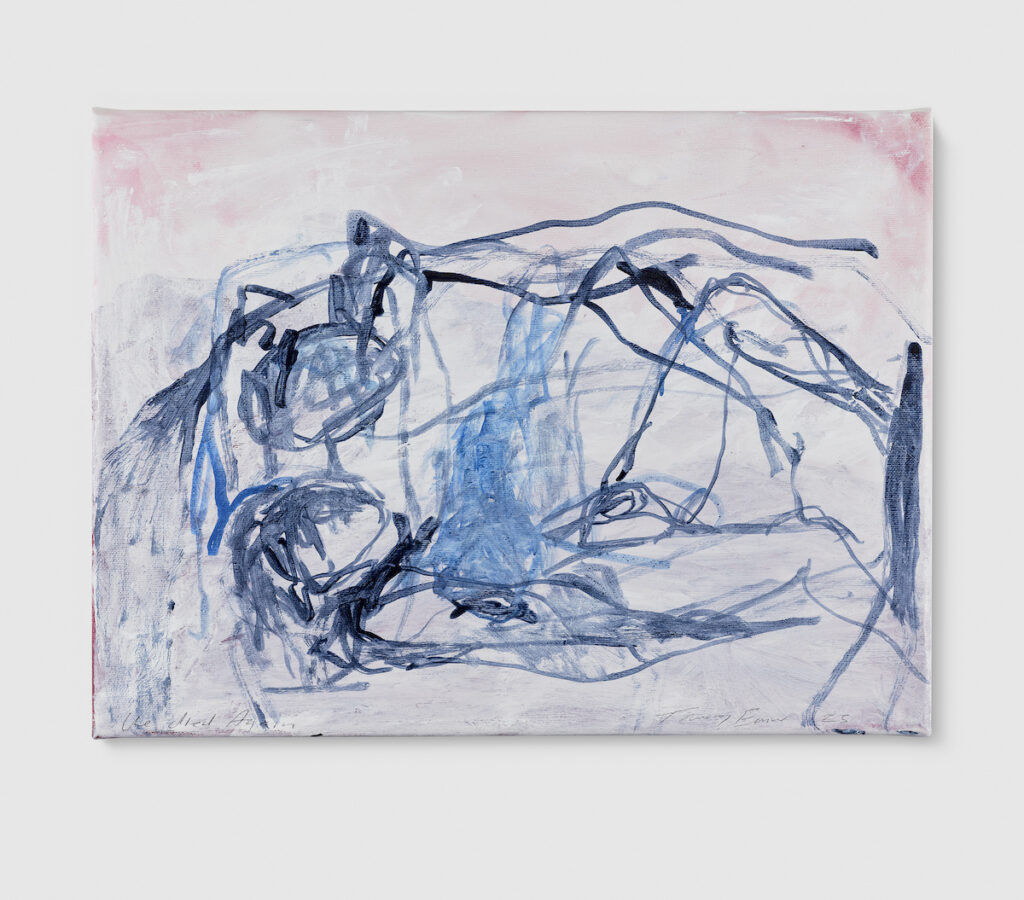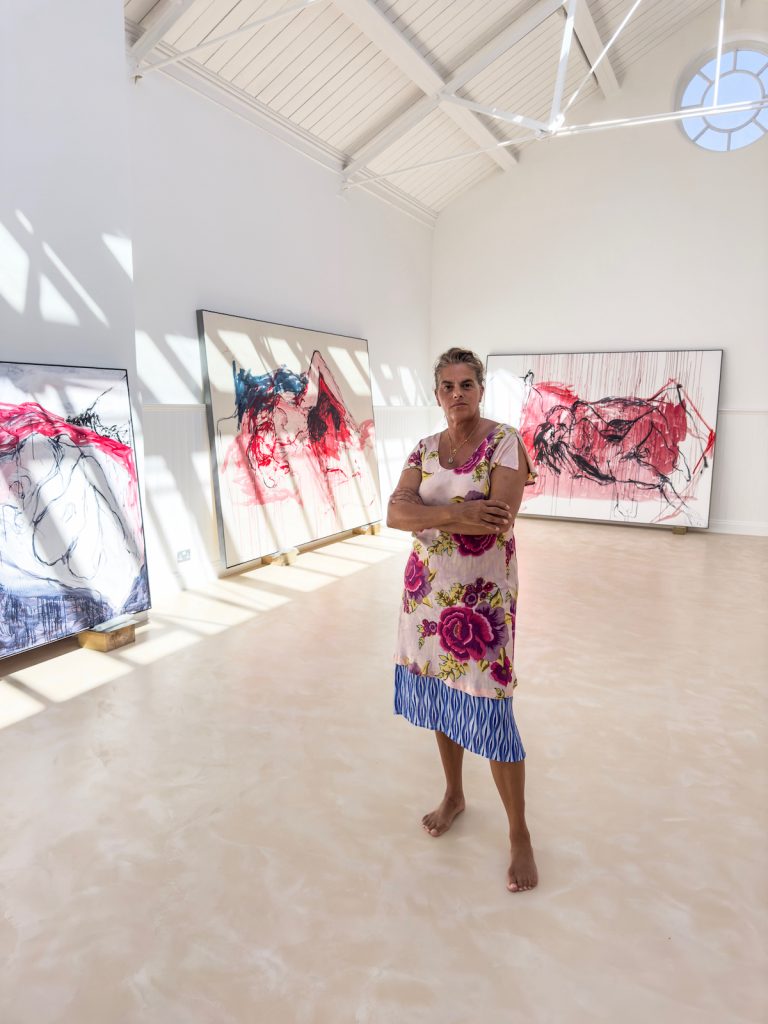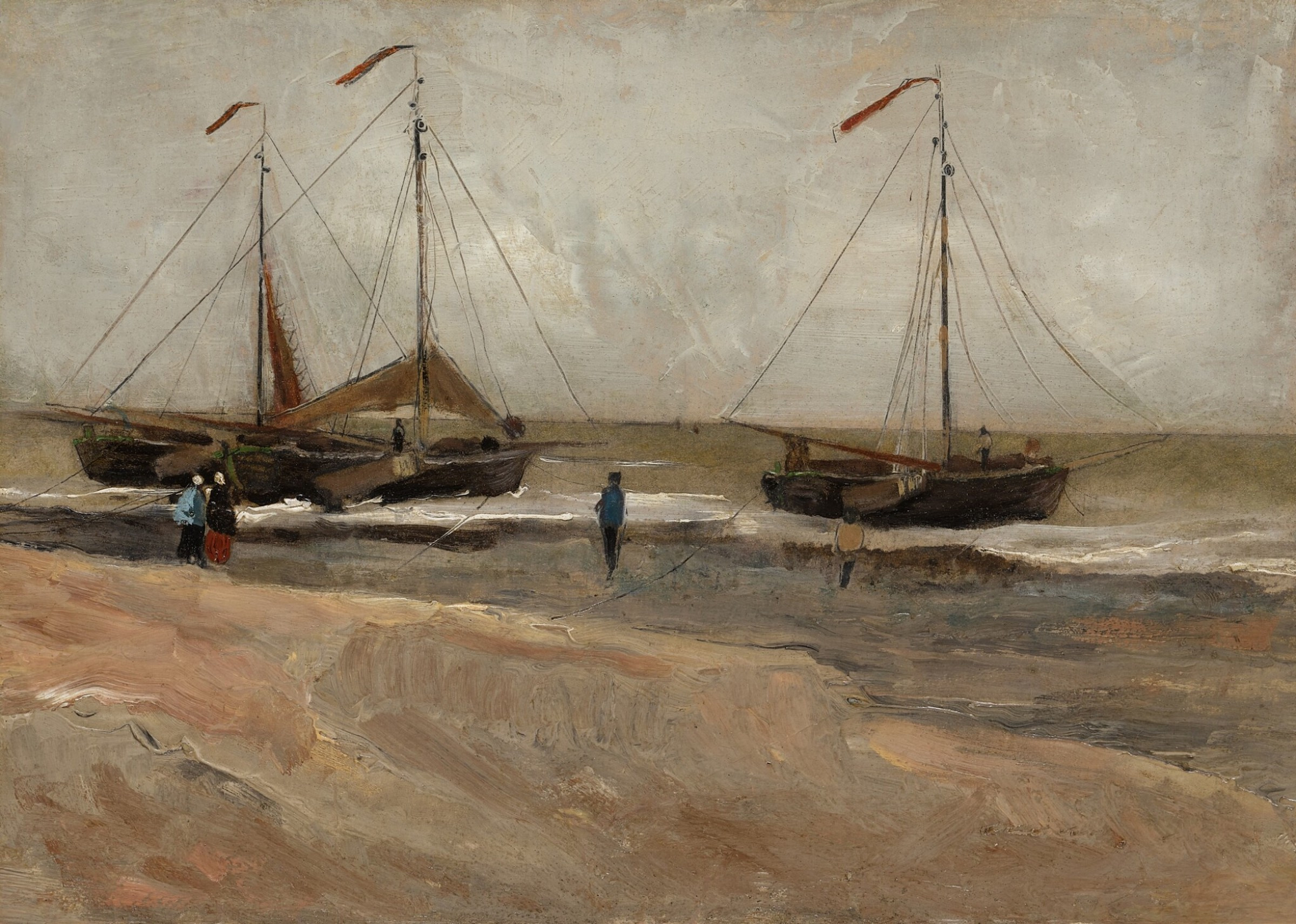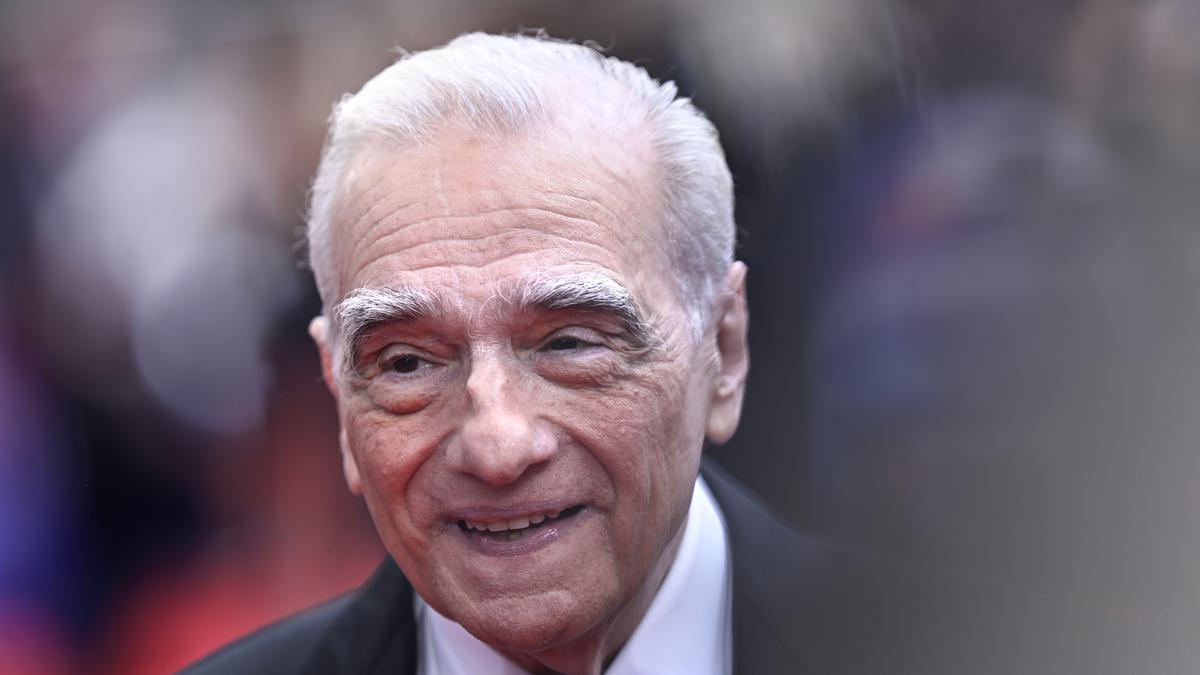White Cube hosts ‘Lovers Grave’ by Tracey Emin, the first solo exhibition in the New York gallery’s program, featuring a new series of paintings and works on paper.
The concept of ‘Lovers Grave’ originates from images of archaeological burial sites, where human remains have been excavated and found to be clutching one another, seemingly locked in an eternal loving embrace. The notion of everlasting devotion between two people, even into the afterlife, fascinates Emin, who considers the quest for such depth of love to be one of the fundamental elements of life. In these works, love is buried, and yet from the sepulcher, new life forms emerge – in the artist’s words, ‘like a phoenix rising from the ashes.’ The theme of resurrection holds particular resonance for Emin, whose recent life-threatening illness had a profound impact on her physical state and her artistic outlook.

In the painting The Beginning and The End of Everything (2023), a female figure lies prone, her body contorted, framed within a loosely delineated form that can be simultaneously read as a bed, a shallow grave, or a vast topography of mark-making. Through the rotation of the canvas, blood-red and white drips flow both downward and upward towards the picture’s edge, serving to both anchor and release the figure from its surroundings. Similarly, the ghostly forms in the background, hovering ominously behind the figure, are not clearly assigned to the real or the subconscious.

In paintings such as So much Love – So Much Kissing, That I Love Myself (2023), entwined bodies collapse into one another, their limbs twisted, perhaps clinging to one another or in the throes of rapture. The motif of ‘Death and the Maiden’, where the personification of expiration confronts the vitality of life, is a prevalent theme throughout the works. In Is Nothing Sacred (2023), the supine figure, legs akimbo, lies in supplication, witnessed by a dark presence in the room which, for the artist, is both the manifestation of an out-of-body experience and an uninvited apparition. Hauntings and spectral presences are conjured, and passion, love and desire are tempered by the knowledge that these feelings, like life itself, is fleeting.

Themes of tumultuous lovemaking are manifest in works such as There was no Right way (2022), where vigorous, spiralling gestures and mirrored, Rorschach-like forms briefly expose bodily contours before disappearing into an abstracted landscape. Small autobiographical details make guest appearances in works such as Like Another World (2023): a bust of the Egyptian princess Nefertiti sitting atop a cabinet in the artist’s bedroom or the geometric design of a Persian rug. In I went home (2023), a grave-shaped backdrop doubles as the aerial contour of the town of Margate, where the artist lives and works.







